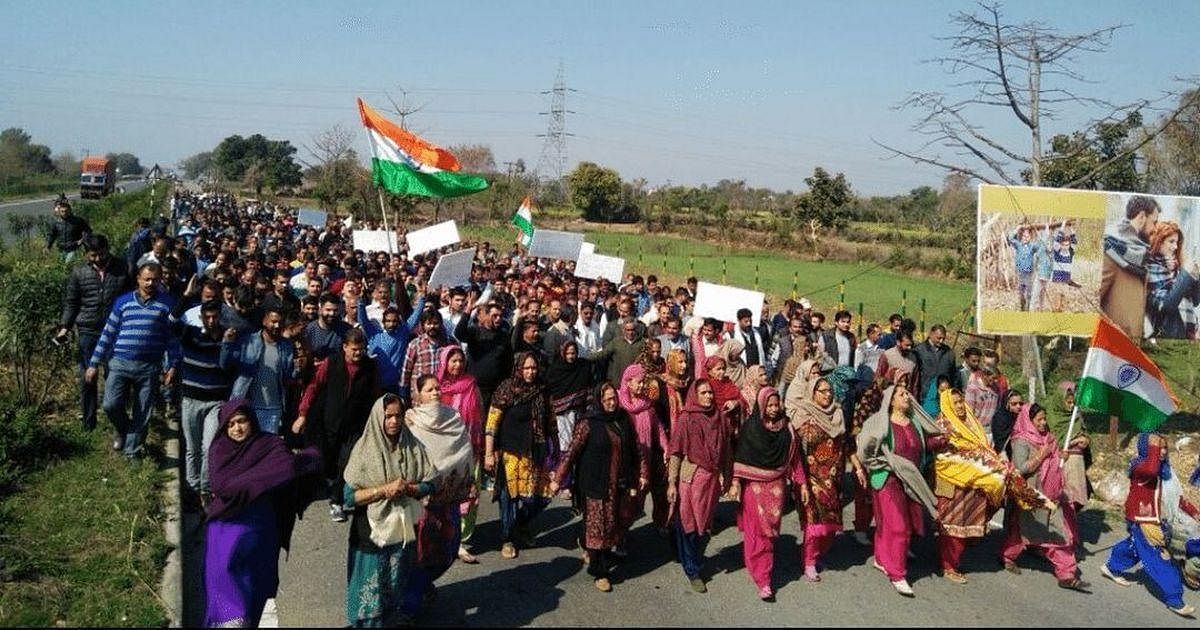
Born in the 1980s, my siblings and I were christened without our traditional family surnames. This had more to do with the fact that the Bihar of the 1980s and 1990s was blotched with communal violence between the forward castes, the backward castes and the other backward castes. My parents sought to keep our identities neutral in this social milieu and hoped for a future when it would eventually become immaterial. Little did my parents know that something like the demolition of Babri Masjid would happen, setting the nation on a new course of caste and religion-based identities.
Today, our surnames are a stronger representation of our identities as compared to the pre-1992 era. It boasts of an identity we may or may not typify. This new counter-culture of exhibition of one’s caste or religion, along with economic means and wherewithal, creates an indifferent confidence and an unstable societal equilibrium. A culture that is proudly flaunted on our vehicle registration plates and rear glasses. In addition, under the contemporary nationalistic fervour, becoming a secular, welfare state seems to be a misplaced national goal.
The idea of human to human justice under the aegis of a modern democratic and secular welfare state is a relatively new concept. To accept equal competitive grounds for disproportionately available resources is a novel honour system. For individuals nurtured within our traditional social systems, the idea of social and financial transactions on non-discriminatory grounds between socio-economically unequal individuals becomes somewhat unacceptable. being part of a homogeneous group of people who have acquired this homogeneity through inheritance results in harbouring feelings of being cornered on one’s own traditional turf.
This discrimination comes to the forefront when prominent and influential citizens of minority groups are not able to buy property in a certain society or transact on other occasions. The loss on the grounds of caste or religion in this case is often conquered by the affluence acquired through the economic class structure, allowing such citizens to move to some other more liberal or secular parts of the city or perform similar transactions at other places.
However, similar economic and financial opportunities are not accessible to all. Even today, traditional structures of caste and religion eclipse the economic class structure in the psyche of a majority of urban and rural Indians. This is very much evident through the fact that a property-related financial transaction between two individuals was seen as an event altering the social dynamics of a place and led to the rape and death of an eight-year-old.
Such attempts of controlling future resources amidst traditional social structures by homogeneous groups through brutal means was also evidenced during the Jat agitation in Haryana. Incidents like Nirbhaya and Kathua, along with the Jat agitation, tell us a lot about the ground we need to cover in terms of social justice and equity for individual citizens as well as vulnerable groups.
Today, what we need is to work towards the long-term design of a social conscience against such crimes. The fact that even after so many similar incidents and our everyday vulnerability to murder, burglary, loot and harassment, we have not succumbed to the idea of allowing easy access to guns and arms to individual citizens, tells a lot about our society’s subconscious strength.
The fact that a developing country like ours can have better gun control as compared to a developed country like America, while having higher levels of crime and instability, can suggest our future discourse.
Crimes like rape require to be looked at through the dimension of what needs to be done in the short run and what is required in the long run. As a contraption of domination, it needs an instrumental approach like gun control. In the short run, it needs non-bailable penal arrangements with zero tolerance, limited not only to the perpetuators but extended to people acting as hinder the judicial process. A treatment no lesser than the idea of having a police state and retributive justice.
However, it is much harder work to inculcate greater and better societal subtleties. Like always, education bears the burden of becoming the most important tool. While education for sure should work towards creating equitable economic class structures, its aim should also become to develop the much-needed honour system, the idea of having human to human social justice.
Sensitisation of the masses
Economic equity alone cannot bring this paradigm shift. Secularisation and sensitisation of the masses to show utmost regard to fellow citizens can only be achieved through education tuned towards the same. An education that is not limited to sensitisation of minors and teenagers only but expansive enough to cover citizens of all social strata and working classes. When the objective of education is tuned towards handling such subtle subjectivities of honouring and valuing others, only then will our window towards a rape-free society open.
Currently, this does not seem to be the case. This would require a two-tier sensitisation, first of our civil society and organisations, then of individuals who come within the umbrella of such organisations. The sensitisation should not be limited to modern civil societies but should include traditional ones like Khap panchayats and other religious organisations. A framework-based filtering down of such an honour system is the herculean task currently on our hands. Without its success in the long-run, the severest of penal code will fail to address the problem of rape.
Today, like independent India, my father is 71 years of age. He does not ponder anymore upon the failed dream of a neutral and just society without surnames. However, I hope that I will not require to do the same when I turn 70. The idea of a secular and equal state was a constitutional concept in 1947. The fact that it is yet to become a social concept tells us how far we have come in the last 70 years.
(The writer is Assistant Professor, Operations Management Area, Jindal Global Business School)